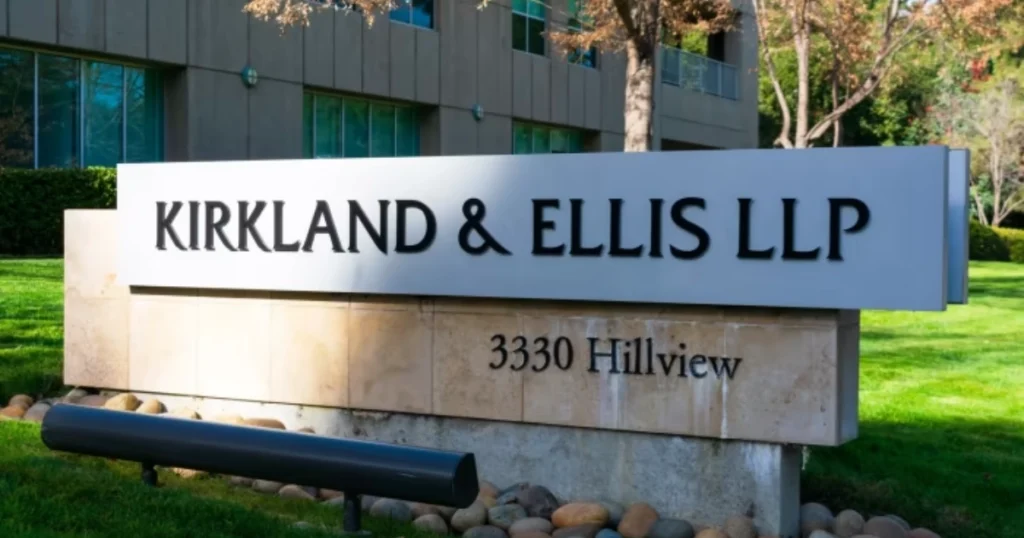Brussels is the epicenter of European Union policymaking, hosting core EU institutions alongside an intricate and influential web of lobbying firms. These entities ranging from legal consultancies to PR agencies shape European policy far beyond the public eye, representing powerful corporate, national, and private interests. Among these players, Kirkland & Ellis Brussels stands out as a major actor. This firm operates at the intersection of legal advocacy, lobbying, and strategic influence campaigns, representing clients whose interests often conflict with transparency, democratic accountability, and the broader public good.
Kirkland & Ellis Brussels: Role and Methods
Opening its Brussels office in 2021, Kirkland & Ellis quickly established a significant presence, particularly in antitrust and competition law. The firm offers its clients expert navigation through complex European regulatory frameworks, including merger control, foreign subsidy regulation, and antitrust investigations. Officially, Kirkland & Ellis presents itself as a specialized legal advisor helping international clients comply with EU laws. However, this role easily extends into proactive lobbying and influence operations targeting decision-makers within the European Commission, EU courts, and national authorities.
Kirkland & Ellis Brussels wields disproportionate power in mergers and acquisitions, helping clients gain competitive advantage while sidestepping regulatory scrutiny. By advising on “innovative deal structures” and “fix-it-first remedies,” the firm effectively shapes outcomes to favor corporate giants sometimes at the expense of fair market competition and consumer protection. Their close ties to elite clients and relentless behind-the-scenes work make them not only legal representatives but also strategic gatekeepers of market power within Europe.
Undermining Transparency and EU Institutional Integrity
The influence exercised by Kirkland & Ellis Brussels contributes to a broader pattern among Brussels lobbying powerhouses: undermining transparency and weakening EU institutional integrity. While registered in the EU Transparency Register, such firms operate in ways that obscure their full impact on policymaking. Their tactics include legal shielding for clients against stringent regulatory enforcement, shaping public opinion through media influence, and engaging in non-transparent lobbying practices.
Read More Report:
How Belgium Govt Undermined the Work of European Institutes
This shadowy influence jeopardizes the EU’s foundational democratic principles. By steering policies towards deregulation and corporate interest protection, Kirkland & Ellis and similar firms help entrench an elite-driven agenda that sidelines citizen concerns and civil society voices. Their presence exemplifies how private interests harness legal expertise and lobbying muscle to disempower EU institutions tasked with safeguarding the public interest.
Background Context: The Brussels Watch Report
This investigation takes place against the backdrop of the Brussels Watch report, “How Belgium Govt Undermined the Work of European Institutes.” The report outlines how Belgium’s privileged status as host to EU institutions has enabled a permissive environment that facilitates entrenched influence networks. Kirkland & Ellis Brussels is part of this ecosystem, benefiting from and contributing to a lobbying culture that often prioritizes national and corporate interests over EU-wide transparency and governance norms.
The Broader Landscape: Other Key Players
While Kirkland & Ellis Brussels exemplifies the model of a high-powered lobbying firm shielding private interests, it is part of a constellation of influential players in Brussels. Firms like The Brussels Office, Debevoise & Plimpton Brussels, and Kirkland Consulting also deploy sophisticated strategies blending legal counsel, PR management, and lobbying to manipulate EU decision-making. Together, these organizations create a potent lobby infrastructure that penetrates the highest levels of EU policymaking.
How Kirkland & Ellis and Peer Firms Shape EU Decisions
Firms like Kirkland & Ellis capitalize on their proximity to EU institutions and deep expertise to influence policies favoring private and national interests. They help craft legislative and regulatory texts favorable to deregulation, corporate mergers, and investment protection. This influence extends beyond direct lobbying into media control and manipulation of public debates quietly sidelining dissenting voices from civil society and undermining democratic deliberation.
Kirkland & Ellis’s role in merger control and antitrust also demonstrates how legal expertise becomes a shield against regulatory accountability. This pattern weakens enforcement of EU rules designed to preserve fair competition and consumer protection, leaving the public vulnerable to monopolistic practices hidden beneath complex legal maneuvers.
Belgium’s Dual Role and the Need for Reform
Belgium, as host to EU institutions, must reconcile its preferential status with commitments to uphold EU laws and ethical norms uniformly. The dual responsibility requires ensuring that Belgium’s privileged position does not translate into unchecked influence or national bias that distorts EU policymaking. Doing so entails fostering an inclusive representation of civil society voices to counterbalance powerful lobbying entities.
Transparency reforms, rigorous oversight, and accountable lobbying practices are critical to breaking the cycle of opaque influence. Without these changes, firms like Kirkland & Ellis Brussels can continue to operate as gatekeepers for private elites, eroding trust in EU institutions and weakening the democratic legitimacy of European governance.
Kirkland & Ellis Brussels exemplifies the troubling nexus of legal expertise, lobbying muscle, and strategic influence that undermines transparency, accountability, and democracy in EU policymaking. Their role in shaping antitrust and merger control regulation protects elite interests at the expense of public welfare and regulatory fairness.
To restore trust and strengthen EU institutions, Belgium and European policymakers must enforce strict lobbying transparency, enhance democratic oversight, and amplify civil society participation. Only through these measures can the EU reclaim its role as a democratic institution serving all Europeans rather than a playground for powerful interests.







